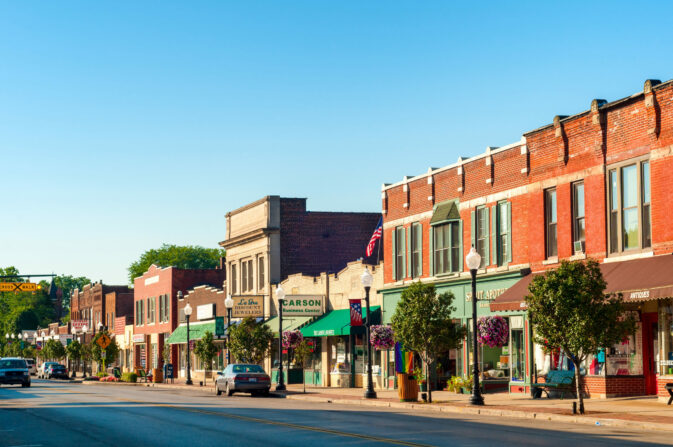The Inflation Fight Is Far From Over

The Biden administration and its media trumpets are celebrating this week’s slowdown in the inflation rate. “Great news,” tweeted the White House. “Today’s inflation report shows annual inflation is now at the lowest level since March 2021, and less than half of what it was last June. This is giving families real breathing room.”
In reality, American small businesses and families are still suffocating from runaway prices. As Andy Puzder pointed out, the White House’s statement is misleading because it ignores how inflation compounds; today’s high inflation comes on top of the super-high level from last year. Inflation has increased by more than 15% during President Biden’s term. For some items, such as food, the increase is closer to 20%.
Over the past year, core inflation rose faster than average wages, meaning Americans’ real wages and living standards are declining. According to the latest reading of the Federal Reserve’s favorite indicator, inflation is accelerating once again. This is nothing to brag about.
The Babylon Bee’s recent headline, “Biden Brags That He’s Destroying Economy At Slightly Slower Rate Than Before,” may be satire but it seems to describe the situation perfectly. Runaway prices are a direct result of Biden’s reckless spending that injected trillions of dollars unnecessarily into the economy, bidding up prices and decreasing the value of the currency already in existence.
According to Job Creators Network’s latest Small Business IQ poll, more than half of small business owners now say inflation is their biggest concern. That’s nearly twice as many as those who made this claim in 2021 and a record high for the poll.
These are businesses like The Den Smokehouse & Brewery near Fresno, Calif., which was recently forced to close permanently because it couldn’t keep up with “Bidenflation.” “We were buying tri-tip for $3.89 a pound; now we are up $8, maybe $9 a pound,” said owner Caleb Walker, whose deep fryer oil costs also increased from $20 to $44.
Walker tried to offset these costs by raising the price of his tri-tip sandwich from $11 to $16. But customers are price sensitive. There’s only so much they’re willing to pay for a sandwich before they simply decide to eat at home. “It’s pretty depressing,” said Walker. “I spent a lot of time, a lot of effort, a lot of money.”
Just as many small businesses can’t contend with inflation by raising prices, many average Americans can’t keep up with only their paychecks.
Geovanni Williams, a father from Northern Virginia, says the costs of his children’s sports activities have nearly doubled. To try to offset these higher prices, he has stopped getting take-out dinners in favor of preparing meals at home. Restaurants like The Den Smokehouse & Brewery lose out as a result.
The Fed announced an interest rate hike pause this week, but for many small businesses, the damage is done. The Fed’s aggressive rate hikes in response to Bidenflation have made the credit that small businesses rely on scarcer and more expensive. Our poll finds two-thirds of small businesses are concerned that rising interest rates will reduce access to credit.
These are businesses such as Janna Rodriguez’s daycare in New York, which needs a $2 million loan to expand. All Ms. Rodriguez hears from banks is “no.” She says if she can’t expand, she’ll be forced to close because her current set-up isn’t profitable.
Similar story for Stephen Martin, who runs a cleaning business in Duluth, Ga. He needs a loan of $20,000 to $50,000 to purchase new equipment but can’t find one. “It’s not an environment meant for small businesses to survive,” he says.
The Fed indicated that it plans to continue raising rates in July, compounding the pain on small businesses.
The nation remains in a stagflationary environment that could still easily tip into a recession. Many small businesses are already in one — no matter what the White House and media say.
Alfredo Ortiz is president and CEO of Job Creators Network and author of “The Real Race Revolutionaries: How Minority Entrepreneurship Can Overcome Racial and Economic Divides.”





